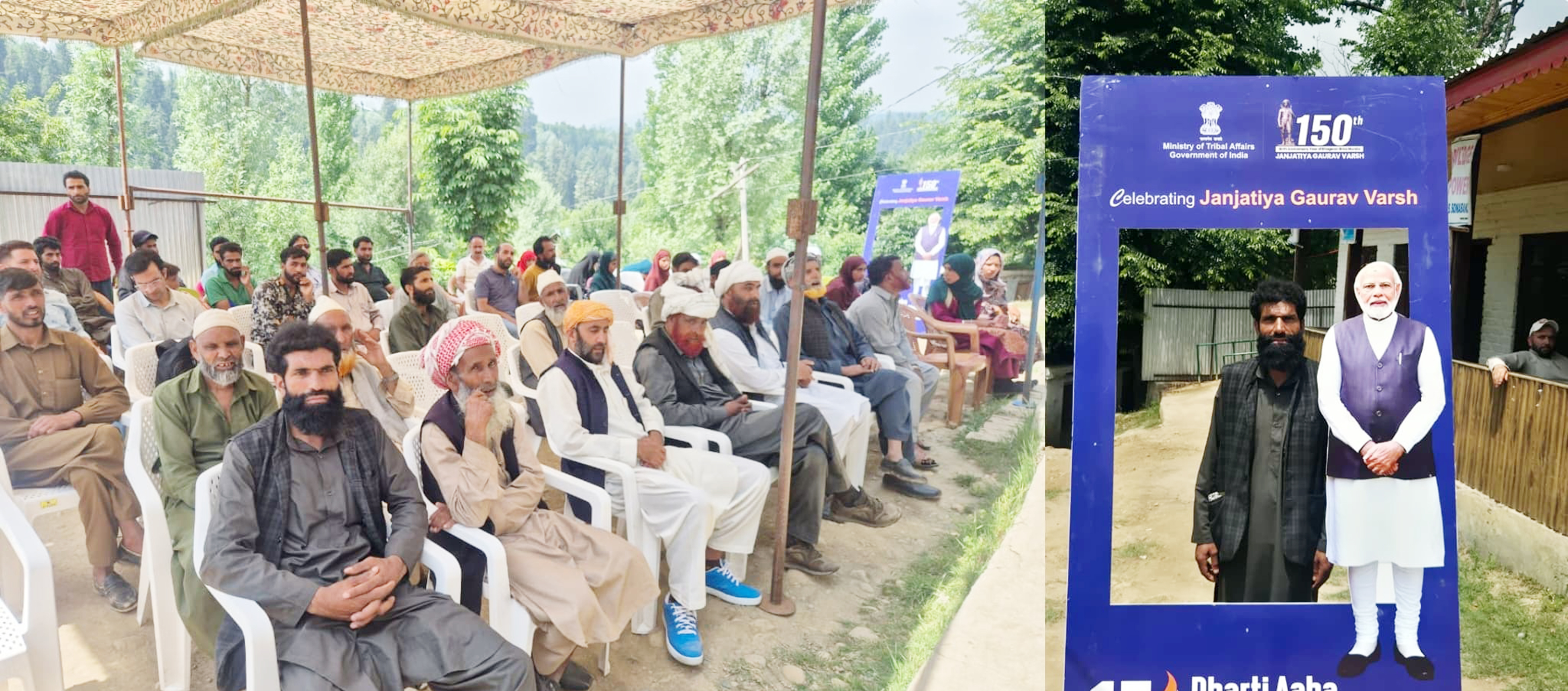
early times report
PULWAMA, June 25: Continuing its ongoing campaign to inclusive development and last-mile delivery of services under the nationwide Dharti Aaba Janjatiya Gram Utkarsh Abhiyan (DAJGUA), district administration Pulwama today organised a mega Awareness and Benefit Saturation Camp at Sonabanger Achgooze.
The initiative aimed to ensure the holistic development of tribal communities through focused interventions in sectors such as infrastructure, healthcare, education, livelihoods, and digital empowerment.
Various government departments including Health, Education, Rural Development, Agriculture, Horticulture, Animal & Sheep Husbandry, Fisheries, Food Civil Supplies & Consumer Affairs, Forest, and others participated in the camp. Each department set up dedicated stalls offering real-time beneficiary registration, on-spot enrolments, personalized scheme consultations, and distribution of informative materials such as brochures and pamphlets to promote informed participation.
A special health camp was conducted by the Health department, where a team of doctors and paramedics provided free consultations and treatment. Particular emphasis was laid on awareness and early screening of sickle cell disease and water-borne illnesses.
Health experts also educated attendees on preventive measures including safe drinking practices, hand hygiene, and early symptom identification.
To strengthen digital inclusion, a Common Services Centre (CSC) was also set up at the venue by the District CSC Coordinator. The centre facilitated Aadhaar enrolment and corrections, along with registration under government schemes and scholarship programmes.
Furthermore, during the event a collective pledge was also taken by the officials and stakeholders present, reinforcing their commitment to the socio-economic upliftment of tribal communities and the saturation of welfare services at the grassroots level.
The outreach event received an overwhelming response from the local population, who appreciated the administration’s efforts in making governance accessible and responsive to the needs of tribal households.
|
